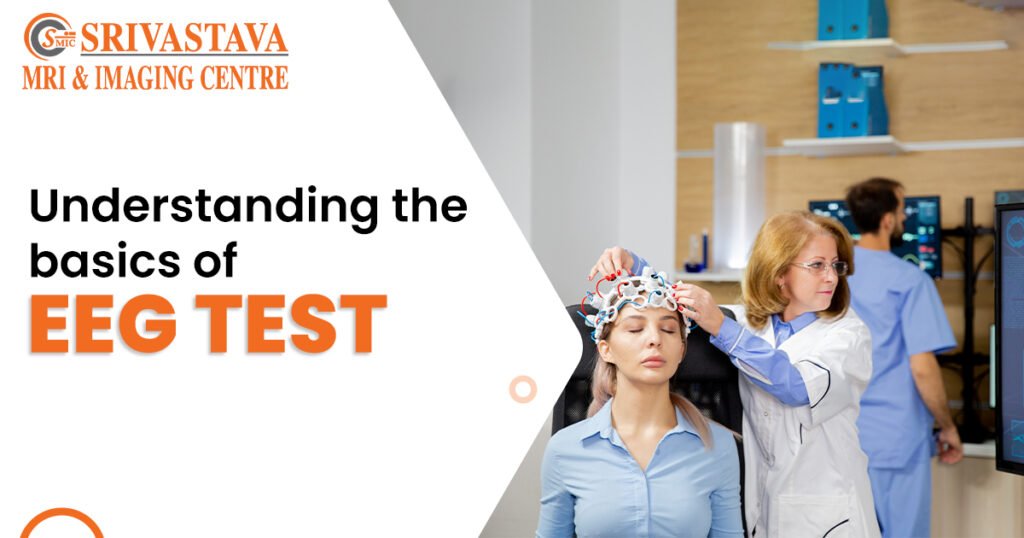In the realm of medical diagnostics, EEG (Electroencephalography) tests stand out as crucial tools for unravelling the complexities of the human brain. As we delve into comprehending the fundamentals of EEG tests, we embark on a journey that not only demystifies the process but also highlights the significance of facilities like the EEG Test Centre in Delhi, such as the Srivastava MRI & Imaging Centre.
What is EEG, and why is it essential?
Electroencephalography, or EEG, is a non-invasive procedure that measures and records the electrical activity in the brain. This diagnostic technique helps in detecting various neurological disorders, including epilepsy, brain tumours, and sleep disorders. By monitoring the brain’s electrical impulses, EEG aids in diagnosing abnormalities in brain function, guiding treatment plans, and assessing overall brain health.
Understanding the EEG Procedure:
During an EEG test, electrodes are placed on the scalp to detect the electrical signals generated by the brain. These electrodes are connected to an amplifier, which amplifies the signals for recording. The patient is typically asked to relax with their eyes closed or open, and sometimes specific tasks or stimuli may be provided to evoke brain responses.
The EEG Test Centre in Delhi, such as Srivastava MRI & Imaging Centre, offers state-of-the-art equipment and facilities for conducting EEG tests with precision and accuracy. Their team of experienced technicians ensures optimal electrode placement and recording quality, essential for obtaining reliable results.
Interpreting EEG Results:
Interpreting EEG results requires specialized knowledge and expertise. Trained neurologists analyze the recorded brain waves, looking for patterns and abnormalities that may indicate neurological conditions. Certain patterns, such as sharp waves or spikes, can suggest epilepsy, while others may indicate sleep disorders or brain injuries.
The Role of EEG in Neurological Disorders:
EEG plays a crucial role in the diagnosis and management of various neurological disorders:
- Epilepsy: EEG is instrumental in diagnosing epilepsy and determining the type of seizures a patient experiences. It helps in identifying the specific areas of the brain responsible for seizure activity, guiding treatment decisions, and monitoring response to therapy.
- Sleep Disorders: EEG recordings during sleep can reveal abnormalities in sleep patterns, such as sleep apnea or parasomnias. These findings aid in diagnosing sleep disorders and devising appropriate treatment strategies.
- Brain Tumors and Injuries: EEG can detect abnormal electrical activity associated with brain tumours or injuries, assisting in their early detection and monitoring progression over time.
- Neurological Conditions: EEG is also used in assessing brain function in patients with neurodegenerative diseases, movement disorders, and cognitive impairments.
In Conclusion:
Understanding the basics of EEG tests provides insights into their significance in diagnosing and managing neurological disorders. Facilities like the EEG Test Centre in Delhi, such as Srivastava MRI & Imaging Centre, play a pivotal role in conducting EEG tests with precision and expertise. With advancements in technology and ongoing research, EEG continues to evolve as a vital tool in neuroscience, offering hope for better understanding and treating disorders of the brain.



